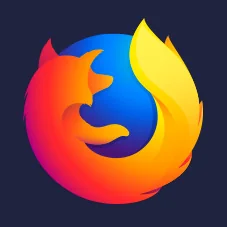Mozilla Comes Out Neutral On JPEG-XL Image Format Support

A few months back was the surprising news of Google deciding to deprecate JPEG-XL image support in their Chrome web browser. Google went ahead with Chrome 110 and removed the JPEG-XL support. Mozilla meanwhile has continued to offer JPEG-XL as an opt-in feature within nightly builds of the Firefox web browser.
Going back to May 2021 has been a request for Mozilla's position on JPEG-XL as an image standard. Finally overnight via Mozilla's Martin Thomson there is a published opinion on the matter:
"After a lot of consultation (and time, sorry), we've concluded that we are neutral on JPEG-XL.
There are two competing forces in play here that we need to acknowledge explicitly. Adding new formats comes with a cost, not just to us (adding, securing, and maintaining code is non-trivial), but to the Web as a whole. On the whole, having fewer formats is better for the Web as that limits the complexity of authoring and serving content. We support multiple formats only to the extent that those formats address the needs of people and sites.
We might assess a format based on features that it provides and the overall performance of the format, which includes a range of factors including compression ratios, CPU cost, and image quality. We might also look at how widely a format is used; features and performance advantages matter less for widely used formats. New formats need to justify their inclusion on the basis that they provide some material advantage over what exists.
On the other hand, the Web has a ton of raster image formats already with many of the same problems. Adding yet another format doesn't make the Web significantly worse for it. We acknowledge that JPEG-XL offers some potential advantages, both in terms of features and performance.
Overall, we don't see JPEG-XL performing enough better than its closest competitors (like AVIF) to justify addition on that basis alone. Similarly, its feature advancements don't distinguish it above the collection of formats that are already included in the platform.
So we don't see support for JPEG-XL as either good or bad for the Web. We might find it necessary to support the format if usage becomes more widespread, but that will be a product decision[1].
[1] Some reminders regarding the product planning point: Our positions on standards do influence product planning for Firefox, but they are not the only thing we consider when planning what features to build and ship. We also request that people seeking to provide updates on changes in market conditions refrain from doing so. We can re-open a position when there is new information, but updates on market conditions will not typically cause us to change our position here."
One of the key takeaways is: "Overall, we don't see JPEG-XL performing enough better than its closest competitors (like AVIF) to justify addition on that basis alone. Similarly, its feature advancements don't distinguish it above the collection of formats that are already included in the platform." Google and others have also sided with AVIF as their preferred next-generation image format and based on AV1 tech.
With this commit, Mozilla has now officially acknowledged its neutral stance on JPEG-XL support.
112 Comments

